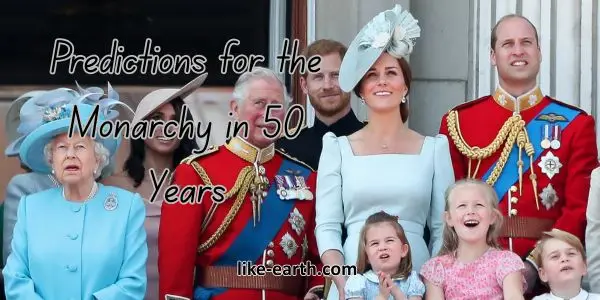Predictions for the Monarchy in 50 Years

Predictions for monarchy in 50 years have become a focal point of political and cultural speculation. As society rapidly evolves, questions arise about whether the monarchy will remain as it is or transform into a new model of leadership.
Historical Context Shapes Future Vision
The monarchy has weathered centuries of change. From absolute rule to symbolic leadership, it has adapted. Its survival depends on the ability to evolve with public values. This historical resilience gives clues about the path ahead.
Technology and Monarchy: A Digital Future
In 50 years, the monarchy may be fully integrated with digital platforms. Royal family members might interact with the public through immersive virtual spaces. Digital transparency and AI-managed engagements may become normal.
A Slimmer, More Focused Institution
Modern monarchies are already streamlining. In the future, only key royals may hold public roles. Extravagant ceremonies could shrink. Cost-efficiency and purpose-driven leadership will be emphasized to maintain legitimacy.
Increased Accountability and Democratic Elements
Future monarchies may face greater scrutiny. Citizens may demand mechanisms for accountability. Advisory councils, citizen panels, or annual transparency reports might become part of standard royal practice to maintain trust.
Environmental and Humanitarian Advocacy
Future monarchs will likely be environmental stewards. With climate change as a global concern, royal influence may shift toward activism. Humanitarian work will dominate their public role, earning credibility through service.
Monarchy’s Cultural and Symbolic Role
The monarchy’s cultural influence will likely endure. Ceremonies, traditions, and national unity will keep symbolic value. Their presence in holidays and history may remain relevant even as political power stays minimal.
Challenges from Republican Movements
Opposition to monarchies will persist. If monarchs fail to adapt, republicanism may gain ground. A monarchy that is transparent, service-oriented, and progressive stands a better chance against growing public demands for reform.
Multicultural Representation and Inclusivity
Future monarchs must reflect a diverse population. Intercultural representation will be vital. Royal engagements may include more marginalized communities. This shift is essential to remain relevant in increasingly diverse societies.
Monarchy and Soft Power Diplomacy
Monarchies will continue to be diplomatic tools. As elected leaders change, monarchs provide continuity. They may represent nations at global summits and cultural exchanges, reinforcing soft power and non-partisan national identity.
Education and Skill-Based Legitimacy
Royal heirs may be required to achieve more than birthright. Education, skills, and public approval could shape their roles. Monarchs may be chosen based on readiness, not just lineage, encouraging meritocracy within heritage.
Media’s Role in Shaping Royal Identity
Media coverage will evolve. Royals will use virtual reality, podcasts, and AI-driven interviews to connect. Media training will be essential. Transparency and communication will build public engagement and loyalty.
Legal and Constitutional Revisions
In 50 years, laws governing monarchies may change. Parliaments may redefine roles or introduce time-limited reigns. Monarchs could be required to serve by consent. Legal frameworks must adapt to reflect democratic values.
Youth Engagement and Generational Change
New generations expect modern values. Monarchies will need to engage youth with relevance. Programs in education, sustainability, and innovation can help build future support and active civic involvement.
Royal Residences and Sustainability
Palaces may turn eco-friendly. Green architecture and smart energy use will reflect environmental responsibility. Royal estates could double as community centers or heritage spaces, balancing history with public access.
The Possibility of Monarchy Abolishment
While unlikely, some nations may abolish their monarchies. This depends on political will, national crises, or major scandals. Transparency, cultural service, and modern reform are crucial to prevent such outcomes.
Global Perspective and Comparisons
Not all monarchies will evolve alike. Scandinavian, Asian, and Middle Eastern monarchies face different pressures. Some will modernize rapidly. Others may remain traditional. Comparative studies will guide reform paths.
Conclusion
Predictions for monarchy in 50 years show a clear need for transformation. With transparency, inclusion, and purpose, the monarchy can endure. Otherwise, it risks fading into irrelevance in a fast-changing world.
Read more global societal shifts on Like Earth.
Follow real-time updates through our official WhatsApp channel.



